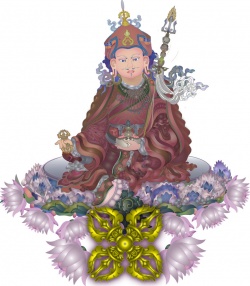The Buddhist Philosophy of Value
Author: Safwan Zabalawi
The basic philosophical question about ‘good’ and ‘evil’ paved the way for a wider investigation about human ‘values’. Values are perceived as being important, worthy and desirable in daily experience. Despite the great number of qualities, which can be defined as valuable, a shared view - in both eastern and western philosophies - considers a number of three values as the most influential in people’s life.
The Prevailing System of Value
Western thinking was greatly influenced by the 18th century philosopher Immanuel Kant, whose work focused on ethics, morality and virtue. Further development of his work led philosophers to adopt a neo-Kantian system of 3 basic values, being: Goodness, Beauty and Truth, as what essentially influence and motivate people.
This widely accepted triad of values was questioned by Tsunesaburo Makiguchi, the first president of the Soka Gakkai. Value, he argued, relates always to human activity. “Goodness” and “Beauty” can be created by people, and therefore can be considered as essential values, “Truth”, however, cannot be “produced” by human activity. “Truth” reveals objective facts, while “Value” - on the other hand - relates to a subjective human dimension.
For example, a statement of fact - such as: “this is a flower” describes an objective “truth”, while a statement of value: “this flower is beautiful” describes a subjective impression.
Makiguchi’s contribution to the system of values was in clarifying that:
truth becomes valuable only when we employ it to create benefit - or to create a shared gain - in our human reality.
Soka System of Value
Nichiren Buddhism regards life, and in particular the enlightened life - as the highest in value:” “Noting is more precious than life itself” WND1 p 301. The values or the virtues that enlightened being manifest are those of wisdom, compassion and action (to benefit others). It is in particular the ‘property of action’ (Onjin Nyorai) - that unifies the other two virtues, as without beneficial action, wisdom and compassion remain as abstract concepts lacking the power for manifestation.
In this perspective, the real value of a ‘truth’ is in its power of applicability in dailylife to produce benefit in society. The truth itself is neutral, but its application to generate benefit - this makes it valuable.
The three essential values recognised by Makiguchi’s system of values are: Goodness, Beauty and Benefit. This system shares the values of Goodness and Beauty with the suggested system in western philosophy, however, it introduces the concept of ‘Benefit-to-humanity’ as the third value. Benefit (or gain) is understood as actions leading to progress and advancement of individual’s and society’s life.
According to SGI literature, “value” is that which can be created and developed. Ikeda has defined value creation essentially as “the capacity to find meaning, to enhance one's own existence and contribute to the well-being of others, under any circumstance.”
The Impact of Values on Society
Motivated by Goodness, Beauty and Benefit, people’s activity influences their lives and that of others. Because of the interconnectedness of individual and society, the goal of creating benefit for social good cannot be maintained by denying or overriding the benefit of individual (such as the implication of Utilitarianism, which can lead to preference or bias towards the benefit of the majority of people on account of many individuals from social minorities).
In the same time, Ikeda explains that, while the individual is important, ‘benefit’ becomes a value only if it includes the wellbeing of others:
- “Of two people making comparable efforts, the results will differ greatly if one person is motivated by a value that transcends the self— (good, beauty, the well-being of others) —while the contrary is motivated by ego”.
- “In his theory of value, President Makiguchi … clearly stated that gain that does not benefit the public interest is evil and anti-value. Without a system of values to guide economic activities, economics becomes devoted to nothing more than making money… There is a danger that such a situation will spin out of control.” The Wisdom of the Lotus Sutra 4 p 127
Anti-values
To create values of Goodness, Beauty and Benefit in any sphere of life, action is required. Obviously, a negative action - leading for example to destruction or deformation - will create the opposite impact, becoming anti-value:
“However, value is called evil, loss or ugliness according to the kind and degree to which it is recognised as being harmful to the maintenance of life”. Makiguchi, the Value Creator , page 52
The practical result of one’s action (whether it leads to happiness or sufferings) - is the criterion for verifying whether the nature of a given action was that of value or anti-value. This perspective gives a simple and direct definition of:
Goodness: removing sufferings and imparting happiness.
Evil: causing sufferings and harm.
Beauty: creating harmony and satisfaction of the senses.
Ugliness: disharmony, deformation and unpleasantness.
Benefit: progress, betterment and advancement (of society and individual).
Loss:, disunity, decline and destruction in people’s life.
Makiguchi explains that Goodness (removing sufferings) and Benefit are interconnected: “Makiguchi defined “Good” as something contributing toward or providing public benefit”. The Wisdom of the Lotus Sutra 3 p 81 - and that Evil (causing harm) and Loss are also linked:”That which has a harmful influence on the social fabric, or destroys social institutions, is called evil” Newsletter 5097, 9 Aug.2002
Differing views between Kant’s and Soka’s implications of Values
While this Buddhist Philosophy of Value sees no contradiction between “individual’s wellbeing” and “virtue”, a philosophical analysis of Kant’s work points to his doubts about the consistency between “virtue” and “personal well being and happiness”:
“Unfortunately, Kant noted, virtue does not insure wellbeing and may even conflict with it”. This view comes in contrast to Ikeda’s statement on the subject: “ From the stand point of the philosophy of value creation, individual happiness and social prosperity ….are closely related” Wisdom of the Lotus S.4 p 114
It is important also to note that the emphasis on “removing suffering and imparting joy” – as a direct and practical meaning of Goodness - differs from Kant’s definition of Goodness, and which he linked to having ‘good will to fulfil one’s duty’:
“The only thing that is good - without qualification or restriction - is a good will”. This statement, however, does not define what ‘Good’ is: it simply explains ‘good’ by ‘good will’.
Creating Value is creating Happiness
While values are a driving force of motivation for action, it is imperative to view the effect of applying or creating value in the reality of human existence. The three values of Good, Beauty and Benefit are not abstract goals in themselves, but serve to create the ultimate goal of happiness:
- “Happiness, as used by Makiguchi, refers to a state of man’s life when he is engaged in the process of attaining and creating value”. Makiguchi, The Value Creator page 56
- “For Makiguchi, the ability to create value was synonymous with happiness. "Happiness" was, for Makiguchi, the very purpose of education, and the very purpose of life.” What is value
- “ From the stand point of the philosophy of value creation, individual happiness and social prosperity ….are closely related”. The Wisdom of the Lotus Sutra 4 p 114
What is the “highest good”?
The text of the Lotus Sutra presents the concept of ‘aspiration for the highest good’ - as the ‘Great Desire’ to act to lessen sufferings of humanity and lead people to Enlightenment, a state of the highest possible good one can offer.
In his reference to the philosophical question: “What is the highest good?” - Ikeda states that “The highest good is to help people open up the world of Enlightenment in their lives and forge global solidarity of good will” The Wisdom of the Lotus Sutra 3 p 90
Source
http://sokahumanism.com/nichiren-buddhism/Buddhist_Philosophy_of_Value.html






